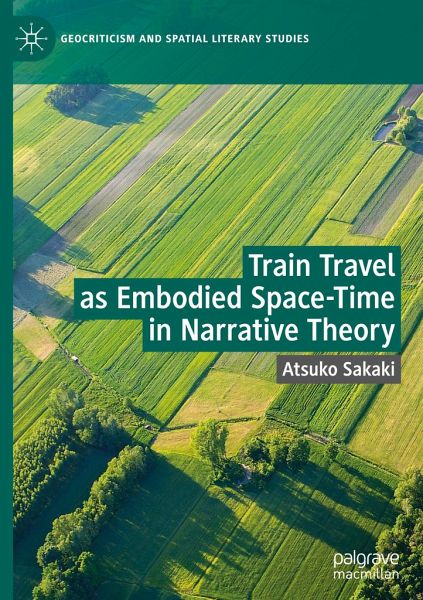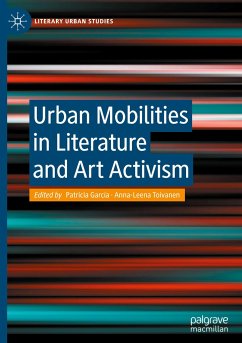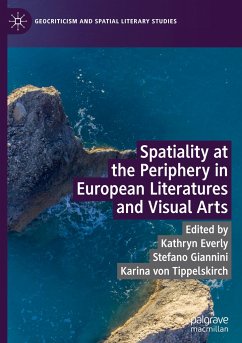
Train Travel as Embodied Space-Time in Narrative Theory
Versandkostenfrei!
Versandfertig in 6-10 Tagen
91,99 €
inkl. MwSt.
Weitere Ausgaben:

PAYBACK Punkte
46 °P sammeln!
Train Travel as Embodied Space-Time in Narrative Theory argues that the train is a loaded trope for reconfiguring narrative theories past their "spatial turn." Atsuko Sakaki's method exploits intensive and rigorous close reading of literary and cinematic narratives on one hand, and on the other hand interdisciplinary perspectives that draw out larger connections to narrative theory. The book utilizes not only narratological frameworks but also concepts of space-focused humanity oriented social sciences, such as human geography, mobility studies, tourism studies, and qualitative/experience-base...
Train Travel as Embodied Space-Time in Narrative Theory argues that the train is a loaded trope for reconfiguring narrative theories past their "spatial turn." Atsuko Sakaki's method exploits intensive and rigorous close reading of literary and cinematic narratives on one hand, and on the other hand interdisciplinary perspectives that draw out larger connections to narrative theory. The book utilizes not only narratological frameworks but also concepts of space-focused humanity oriented social sciences, such as human geography, mobility studies, tourism studies, and qualitative/experience-based ethnography, in their post "narrative turn." On this interface of narrative studies and spatial studies, this book pays concerted attention to the formation of affordances, or relations in which the human subject uses a space-time and things in it, in terms of passenger experience of the train carriage and its extension. Affiliation: Atsuko Sakaki, University of Toronto, Toronto, Canada.














